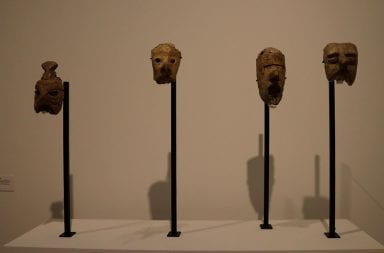Following the fall of Egyptian dictator Hosni Mubarak, Egyptian relations with Israel, and thus the West, have slowly degenerated. This may just be part of the restructuring process and ramifications of the chaos that have ensued from the Arab Spring. On the other hand, it could be an early indicator of what future relations may look like and a forecast of future instability in the region. To theorize further, however, it is important to summarize recent events to attain a clearer picture:
– Feb. 11, Hosni Mubarak resigned as the de facto dictator of Egypt following country-wide protests.
– March 19, A nation-wide vote passed a new national referendum overwhelmingly, amending much of the original constitution and ensuring a series of checks and balances meant to guarantee democratic safeguards.
– Aug. 18, Palestinian militants conducted a cross-border raid from the Sinai Peninsula.
– Aug. 19, Israel responded by shelling suspected militant positions in the Sinai Peninsula, unfortunately killing three soldiers who were part of an Egyptian military convey.
– Sept. 9-10, Egyptian protesters looted the Israeli embassy in Cairo while Egyptian commandos withdrew Israeli staff members and 85 diplomats.
– Sept. 11, Egyptian officials publicly denounced the attack on the Israeli embassy in Cairo and reiterated that they are committed to maintaining relations and treaties, namely the 1978 Camp David Peace Accords.
Since the fall of Mubarak, the Egyptian military has controlled the country and will continue to do so until a new president is elected in April 2012.
What does all this mean for the U.S. and Israel in a region that is becoming more unstable, yet democratic, at the same time? First, I would like to call attention to a Dutch poll conducted in early November 2006 when 92 percent of Egyptians viewed Israel as an enemy state.
Second, the Muslim Brotherhood, a major party in the newly democratic nation, has called not only for its party but any party who comes to power in Egypt to withdraw from the 1978 Camp David Peace Treaty, as well as break off diplomatic relations with Israel.
Third, the military in Egypt is disrupting efforts for Muslim Brotherhood candidates to register and has jailed nearly 400 members hoping to stem the extremist tide that has awakened in the new age of partial free speech that has hit the country.
Yet, support for the Muslim Brotherhood has grown lately with the diplomatic troubles that occurred in August and September.
So, as the danger of a hostile government becomes a greater concern in the region, how should the U.S. approach its former ally? Should we continue to support the democratic process that may elect a hostile government? Should we continue to grant the Egyptian military aid that has amounted to an average of $2 billion annually? Should we maintain close relations with both of these countries, or choose a side that will better our interests and the interests of our other allies in the region? These are the questions that Secretary of State Hillary Clinton and President Barack Obama must answer prior to next April’s elections.
We as a nation must take the initiative and set a public policy for the region before those elections, before the probable fall of the regime in Syria and the withdrawal of our troops from Iraq. It is time for this administration to break from its past of being reactionary in foreign policy and begin to be proactive in its approach to spreading diplomatic assistance throughout the world.


